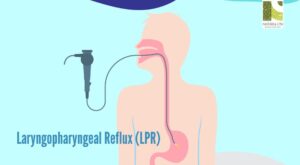The Emotional Toll of Infertility: What Every Woman Should Know

Understanding the Silent Struggle Behind the Smiles
A Silent Pain Hidden Behind Hope
Infertility is more than a medical diagnosis—it is an emotional earthquake that shakes the foundation of a woman’s identity, relationships, and sense of self. In a society like India, where motherhood is often idealized as the ultimate feminine role, struggling to conceive can lead to deep psychological distress, isolation, and shame.
This blog explores the emotional, psychological, and social toll of infertility on women, and emphasizes the need for compassion, support, and a holistic approach to healing.
The Scope: You Are Not Alone
According to the Indian Society of Assisted Reproduction (ISAR), 1 in 6 couples in urban India face infertility, and the number is rising due to late marriages, lifestyle changes, stress, and environmental factors.
Despite how common infertility is, most women experience it in silence, often battling:
- Stigma from family and community
- Emotional roller coasters with each menstrual cycle
- Invasive procedures and hormonal therapies
- Financial burdens and decision fatigue
The Psychological Impact of Infertility
1. Loss of Identity and Self-Worth
For many women, especially in traditional cultures, motherhood is closely linked with identity. Struggling to conceive can lead to:
- Feelings of inadequacy
- Shame and self-blame
- Guilt over letting down a partner or family
“Every month felt like a test I was failing—and I started to feel like I was failing as a woman.” – Anonymous Patient Testimony
2. Anxiety, Depression & Grief
Research shows that infertile women experience levels of psychological distress comparable to patients with cancer or heart disease. These include:
- Clinical depression
- Generalized anxiety
- Grief cycles (denial, anger, bargaining, sadness)
3. Marital Strain
Fertility struggles can lead to:
- Emotional withdrawal
- Blame or resentment
- Sexual dysfunction due to pressure and timing
4. Social Isolation
Women often withdraw from social events—especially baby showers, family functions, or conversations around parenting. Constant questions like “When are you having a baby?” can become emotional landmines.
Medical Journey & Emotional Fatigue
Fertility treatments such as IUI, IVF, ICSI, or hormone injections are not just physically taxing—they are emotionally draining:
- Hopes raised and dashed with each cycle
- Stress of daily injections, scans, and blood tests
- Hormonal mood swings
- Fear of failure, miscarriage, or ectopic pregnancy
Coping Strategies: Healing the Heart and Mind
While medical care is essential, addressing emotional health is equally important. Here are science-backed strategies:
1. Therapeutic Support
- Cognitive Behavioral Therapy (CBT) helps reframe negative thoughts
- Support groups offer community and shared experiences
- Mind-body programs have been shown to increase conception rates in some studies
2. Mindfulness & Meditation
- Reduces cortisol (stress hormone)
- Improves emotional regulation
- Increases sense of control and resilience
3. Open Partner Communication
- Regular check-ins on emotional health
- Shared decision-making
- Couples therapy when needed
4. Boundary Setting
- Politely deflect intrusive questions
- Take breaks from triggering social situations
- Choose whom to confide in
5. Explore Alternate Narratives of Fulfillment
- Parenthood is not the only path to purpose
- Consider adoption, child-free living, or other nurturing roles
- Celebrate yourself for who you are—not just for what you can create
The Role of Medical Professionals
Doctors and fertility clinics need to go beyond lab results:
- Integrate psychological counselling as part of fertility treatment
- Train staff in empathy and sensitive communication
- Avoid using terms like “failure” or “poor response” harshly
Cultural Shift: From Judgment to Compassion
In India, social pressure around fertility is immense. We must:
- Normalize conversations about infertility
- Educate families and communities
- Celebrate women for their strength, resilience, and wholeness beyond motherhood
You Are Not Alone, and You Are Not Broken
Infertility does not define you. Your pain is real, your journey is valid, and your strength is immense. Whether your path leads to conception, adoption, or a new vision of fulfillment, you are worthy of love, joy, and peace.
Healing begins when we replace shame with support, and isolation with understanding.
Let us nurture a world where every woman—regardless of her fertility story—can feel whole, heard, and held.





